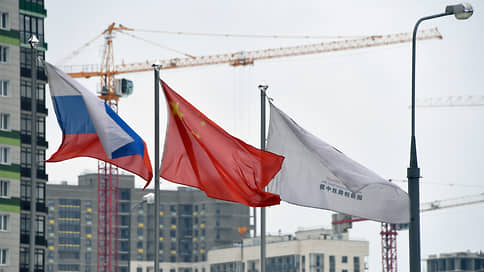Friendship with two ends – Newspaper Kommersant No. 51 (7496) dated 03/27/2023
[ad_1]

In March, the Chinese authorities announced large-scale measures to develop the field of research and development. Among them are the restructuring of regulation, a bet on small private business, and a focus on talent development. Experts note a certain similarity between the plans of Moscow and Beijing in the field of scientific and technological policy, the purpose of which is to achieve technological sovereignty. China and the Russian Federation are now united by a common agenda of confrontation with the West, which at this stage can become the basis for cooperation in the scientific and technological sphere. China, experts say, is more interested in Russian fundamental science, while the Russian Federation is interested in the Chinese experience in commercializing developments.
Experts from the Institute for Economic Research and Economics of Knowledge (ISSEK) of the National Research University Higher School of Economics systematized the approaches of the Chinese authorities to the development of research and development (R&D), announced in March 2023 at the congress of the national parliament and the session of the National Committee of the People’s Political Consultative Council.
In the context of international competition for scientific breakthroughs, advanced technologies and qualified personnel, China aims to ensure technological sovereignty, the ISSEK notes. To this end, it is planned to reform the scientific and technological sphere, in particular, the restructuring of the relevant ministry with the strengthening of the role of sectoral departments. The PRC also relies on small-scale private business, which willingly introduces scientific achievements and spreads a culture of innovation. For such companies, the state plans to purposefully give tax benefits (linking, for example, the tax deferral period with the nature and complexity of the production process). Particular attention will be paid to attracting talent in the field of R&D – for this, it is planned to increase government spending for all levels of education.
A certain similarity between the plans of China and the Russian Federation in science and technology policy can be an advantage in strengthening ties between the countries, Mikhail Gershman, director of the ISSEK Center for Science, Technology, Innovation and Information Policy, believes. During a recent meeting with Chinese President Xi Jinping, Russian Prime Minister Mikhail Mishustin noted the countries’ cooperation in high-tech areas (aerospace, mechanical engineering, machine tool building, space research, end-to-end technologies) and expressed confidence that the expansion of innovative cooperation will strengthen the technological sovereignty of both the Russian Federation, and the PRC (see Kommersant of March 22).
“China is always ready for an open economy, for cooperation: for it, this is an opportunity to gain experience,” says Rozalia Varfalovskaya, a leading researcher at the Institute of China and Modern Asia of the Russian Academy of Sciences. The ISSEK notes that, although the PRC is moving towards technological self-sufficiency, the country needs integration into the global scientific and technological space and international cooperation in this area. Russia and China now have a common agenda of confrontation with Western countries, so they see each other less as a threat, and more as partners at this particular historical moment, believes sinologist Mikhail Korostikov.
Although China was able to achieve world championship in key indicators of scientific and technological development, incl. in terms of the number of publications in international scientific journals, other states are ahead of it in many areas of fundamental research. So China intends to build up competencies by deepening scientific cooperation with the Russian Federation, Mikhail Gershman notes. First of all, we are talking about nuclear physics and the implementation of projects of the “megascience” class (large expensive international scientific and research complexes). Other promising areas are digital technologies and, in particular, artificial intelligence, where the race for supremacy between China and the United States is especially acute (see Kommersant on March 10), new materials, energy, transport, biotechnology, medicine, the expert points out. China is more interested in Russian fundamental science, Russia is interested in the experience of Chinese colleagues in the field of commercialization of developments, he says.
Technological sovereignty for the Russian Federation and China means different things, says Mikhail Korostikov. China, apparently, has set itself the task of producing the entire range of key products and possessing all key technologies, coming out on top of them in the world. For Russia, we are talking about the possession of a minimum set of technologies that would allow it to compete with the West and not “sag” in development. But the Russian Federation is really interesting to China and a number of technologies, the expert notes, for example, in civil aircraft construction.
[ad_2]
Source link






